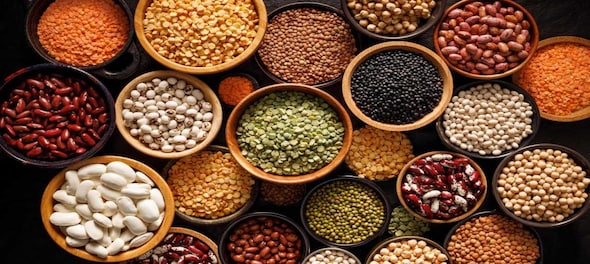
The Centre has reiterated its proposal to provide the minimum support price (MSP) guarantee for the next five years for maize, pulses and cotton, Food and Consumer Affairs Minister Piyush Goyal on Friday.
"Considering the welfare of farmers and declining water levels, the government will guarantee MSP for maize, pulses, and cotton for the next 5 years," Goyal told reporters during a selected media briefing.
The farmers can sell their produce of maize and pulses to the government-owned marketing agencies NCCF and NAFED, while the Cotton Corporation of India (CCI) has been designated for the procurement of cotton.
"The decision will benefit farmers diversifying their crops. Those who cultivate crops with lower water consumption, like lentils and maize, will benefit from the MSP guarantee. This decision will be implemented nationwide," Goyal added.
The central government has finalised a process to implement the decision and has developed a portal where farmers will have to register first and give an undertaking that he has diversified the crop.
Farmers registering on that portal can also sell their produce to NCCF, NAFED, and CCI. The government will use satellite images and crop insurance data to verify if farmers have diversified their crops. The government will use purchased pulses to create buffer stocks, which will later be used to control the prices.
The government will supply maize purchased from farmers through agencies to ethanol plants. For this purpose, the government will enter into tripartite agreements with NCCF, NAFED, and ethanol-producing companies.
Decision in the interest of farmers
The decision comes amid the ongoing farm protests where farmers have been demanding a consistent MSP. In the fourth round of talks with farmer leaders, a panel of three Union ministers had proposed buying of pulses, maize and cotton crops by government agencies at minimum support prices (MSP) for five years after entering into an agreement with farmers.
The leaders, however, rejected the Centre's proposal stating it was not in farmers' interest.
According to Goyal, "The government believes that this decision is in the interest of farmers, so it will be implemented."
Farmers from Punjab began their march to Delhi on February 13 but were stopped by security personnel at Shambhu and Khanauri points on Punjab's border with Haryana. Many protesting farmers have been camping at the Punjab-Haryana border since then as part of their 'Delhi Chalo' march.
Government concerned about declining water levels
The government is concerned about declining water levels in many areas. According to the Dynamic Groundwater Resources Assessment of India - 2017 report, out of 138 blocks in Punjab, water levels in 109 blocks have deteriorated significantly, with two in critical and five in semi-critical situations. Only 22 blocks are safe. In recent years, the cost of extracting water from the ground has increased for small farmers, resulting in reduced input costs for crops that do not require much water.
The government believes that maize cultivation will be used for ethanol blending. By 2025, the government has set a target of 20% ethanol blending, which will help reduce dependence on crude oil imports, promote renewable energy, and control pollution from vehicles. Increased cultivation of pulses can also help reduce dependence on imports.
(Edited by : Ajay Vaishnav)
First Published: Mar 8, 2024 10:00 PM IST
Check out our in-depth Market Coverage, Business News & get real-time Stock Market Updates on CNBC-TV18. Also, Watch our channels CNBC-TV18, CNBC Awaaz and CNBC Bajar Live on-the-go!


2024 Lok Sabha Elections | Will Amethi and Rae Bareli see the rise of Priyanka Gandhi as a dominant political figure
May 18, 2024 8:59 AM
Lok Sabha Election 2024: I.N.D.I.A. bloc to hold rally at Mumbai's BKC today
May 17, 2024 5:18 PM
In Ayodhya, voters talk of a promise fulfilled and yearning for development
May 17, 2024 2:10 PM
Fight of heavyweights in Sambalpur where farmers, weavers hold the key
May 17, 2024 12:25 PM

